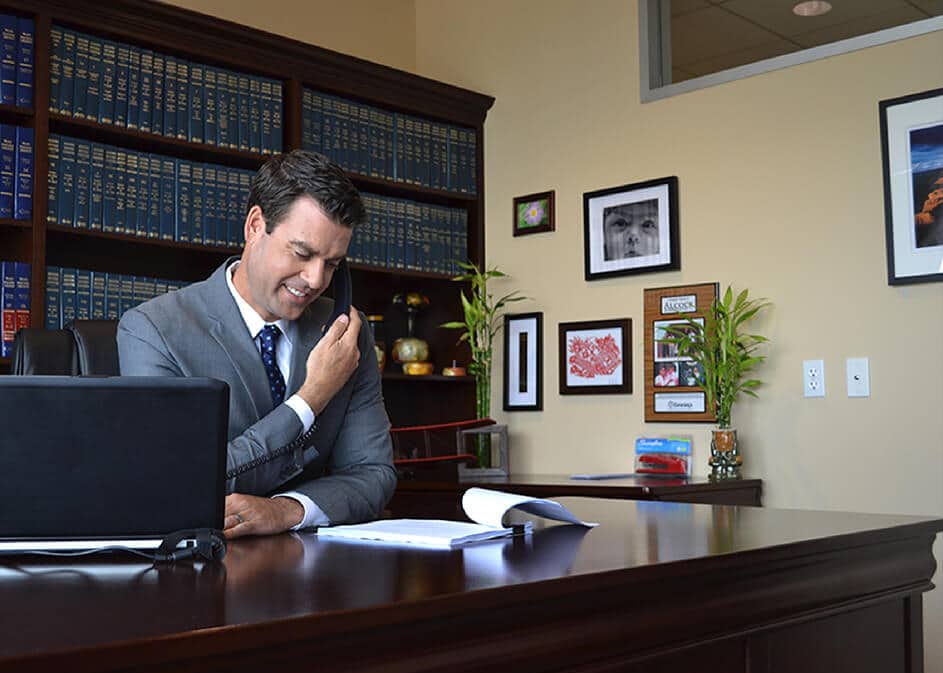What to Do If Pulled Over for DUI–Arizona DUI Attorney
If you’ve been pulled over for DUI in Arizona, it’s natural to worry about what you could have done differently. Attorney Nick Alcock explains what to do and what happens after a DUI arrest to limit the evidence against you and how to avoid a longer DUI license suspension in AZ.
-
VIDEO OVERVIEW AND KEY DETAILS
Understanding the Process of Obtaining a Warrant for DUI Blood Testing in Arizona
When a person suspected of driving under the influence (DUI) in Arizona refuses to submit to a blood test, law enforcement has the legal authority to obtain a warrant to collect a blood sample forcibly. This process is a critical part of DUI enforcement and is designed to balance the individual’s rights with the state’s interest in public safety. Below is a detailed explanation of how this process works and its implications.
Step 1: Refusal to Submit to Testing
Arizona law allows law enforcement officers to request a breath, blood, or urine test if they have probable cause to believe a driver is under the influence. When a person refuses the test, this triggers immediate consequences, including the potential suspension of their driving privileges. However, refusal does not prevent law enforcement from pursuing evidence.
Step 2: Law Enforcement Requests a Warrant
If a driver refuses a blood test, the officer must obtain a search warrant to proceed. This request is usually made to an on-call judge, magistrate, or commissioner who is available 24/7. Advances in technology have streamlined this process, allowing officers to submit warrant applications electronically.
To obtain a warrant, the officer must:
Provide a sworn affidavit or testimony establishing probable cause that the driver was under the influence of alcohol or drugs.
Demonstrate specific evidence supporting the DUI suspicion, such as erratic driving, the odor of alcohol, slurred speech, or failed field sobriety tests.
Step 3: Judicial Review
The judge or magistrate reviews the warrant request to ensure that it complies with constitutional requirements. The Fourth Amendment protects individuals from unreasonable searches and seizures, so the warrant must be supported by probable cause.Once approved, the warrant authorizes law enforcement to collect a blood sample, even if the driver does not consent.
Step 4: Forcible Collection of the Blood Sample
With a valid warrant, officers can proceed to collect a blood sample. This often takes place at a medical facility, police station, or mobile DUI testing unit where trained professionals can perform the procedure safely and legally. While the process can involve physical restraint, officers must use reasonable force to ensure the individual’s safety.
Implications of Refusing and Forcible Testing
Legal Consequences: Refusing a test and requiring a warrant often results in more severe penalties. Arizona has implied consent laws, which mean that refusal to submit to a chemical test can lead to a one-year license suspension, even if the driver is ultimately found not guilty of DUI.
Use of Evidence: The results of a forcibly collected blood sample can be used as evidence in court to support DUI charges. This evidence is often critical in proving the driver’s impairment.
Potential for Enhanced Charges: Refusal to cooperate, combined with evidence obtained through a warrant, may lead prosecutors to pursue more aggressive charges, especially if other aggravating factors are present, such as prior DUI offenses or an extremely high blood alcohol concentration (BAC).
Know Your Rights
While refusing a blood test does not prevent law enforcement from obtaining evidence, it is important to understand your rights during a DUI stop. Always remain polite and cooperative, and remember that you have the right to legal representation. If you have concerns about the process or feel your rights were violated, consult with an experienced DUI attorney immediately.
By understanding the process and implications of DUI blood testing warrants in Arizona, drivers can make informed decisions and better navigate these challenging situations. If you or a loved one is facing DUI charges, contact Alcock & Associates for expert guidance and dedicated representation.
If you need help with a DUI or any other criminal charge in Arizona, call Nick Alcock at 602-989-5000.
How to Limit Evidence Against You During a Local DUI Arrest
1. Avoid Self-Incrimination
Be cautious about what you say and do after the arrest. Conversations in the police vehicle or station are often recorded. Avoid discussing your case or making any statements without your Arizona DUI attorney present, as these can be used against you in court.
2. Exercise Your Right to Remain Silent
One of your most critical rights is the right to remain silent. You are not obligated to answer any incriminating questions, such as whether you have been drinking. Politely decline to answer these questions by saying something like, “I’m sorry, officer, but I would like to remain silent.” This can prevent you from unintentionally providing evidence that could be used against you in court.
3. Refuse Field Sobriety Tests
In Arizona, you have the right to refuse field sobriety tests, such as the walk-and-turn or the one-leg stand test. These tests are highly subjective and often used to gather evidence against you. Refusing field sobriety tests is within your rights and can help limit the evidence the prosecution can use against you. However, refusing a breath or blood test may pose consequences such as DUI license suspension in AZ.
4. Hire a DUI Attorney as Soon as Possible
Having a DUI attorney early in the process to brief you on what happens after a DUI arrest is essential. They can challenge the validity of the traffic stop, the administration of sobriety tests, and the accuracy of chemical testing. Your attorney might also find procedural errors or violations of your rights that could lead to the suppression of evidence.

Plan Your Next Steps with Alcock & Associates
It’s natural to feel stress, shame, and regret after a local DUI arrest. Instead of dwelling on what happens after a DUI arrest, focus on the positive steps you can take now. At Alcock & Associates, we prioritize finding solutions and helping you move forward. Our goal is to reduce your stress, provide you with the best legal options, and guide you toward a positive outcome.
If you’ve been pulled over for DUI in Arizona, don’t wait—contact us online or call us at 602-989-5000 to schedule a free consultation with one of our leading Phoenix DUI defense lawyers. The goal is to get you out of the mess and create a path to a better future.
FREE CONSULTATION >TOP RATED ATTORNEYS IN PHOENIX






It is essential that you are aware of our website policies, as they detail how we protect your data and ensure transparency in the use of your information. Please read our Privacy Policy.



